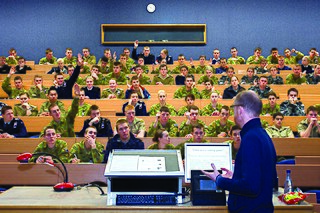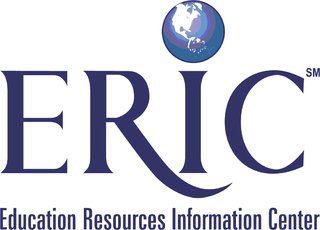Related Research Articles

Educational psychology is the branch of psychology concerned with the scientific study of human learning. The study of learning processes, from both cognitive and behavioral perspectives, allows researchers to understand individual differences in intelligence, cognitive development, affect, motivation, self-regulation, and self-concept, as well as their role in learning. The field of educational psychology relies heavily on quantitative methods, including testing and measurement, to enhance educational activities related to instructional design, classroom management, and assessment, which serve to facilitate learning processes in various educational settings across the lifespan.

Spaced repetition is an evidence-based learning technique that is usually performed with flashcards. Newly introduced and more difficult flashcards are shown more frequently, while older and less difficult flashcards are shown less frequently in order to exploit the psychological spacing effect. The use of spaced repetition has been proven to increase rate of learning.
Pattern recognition is the automated recognition of patterns and regularities in data. It has applications in statistical data analysis, signal processing, image analysis, information retrieval, bioinformatics, data compression, computer graphics and machine learning. Pattern recognition has its origins in statistics and engineering; some modern approaches to pattern recognition include the use of machine learning, due to the increased availability of big data and a new abundance of processing power. These activities can be viewed as two facets of the same field of application, and they have undergone substantial development over the past few decades.
Educational assessment or educational evaluation is the systematic process of documenting and using empirical data on the knowledge, skill, attitudes, and beliefs to refine programs and improve student learning. Assessment data can be obtained from directly examining student work to assess the achievement of learning outcomes or can be based on data from which one can make inferences about learning. Assessment is often used interchangeably with test, but not limited to tests. Assessment can focus on the individual learner, the learning community, a course, an academic program, the institution, or the educational system as a whole. The word 'assessment' came into use in an educational context after the Second World War.

A lecture is an oral presentation intended to present information or teach people about a particular subject, for example by a university or college teacher. Lectures are used to convey critical information, history, background, theories, and equations. A politician's speech, a minister's sermon, or even a business person’s sales presentation may be similar in form to a lecture. Usually the lecturer will stand at the front of the room and recite information relevant to the lecture's content.

The scholarly method or scholarship is the body of principles and practices used by scholars and academics to make their claims about the subject as valid and trustworthy as possible, and to make them known to the scholarly public. It is the methods that systemically advance the teaching, research, and practice of a given scholarly or academic field of study through rigorous inquiry. Scholarship is noted by its significance to its particular profession, and is creative, can be documented, can be replicated or elaborated, and can be and is peer-reviewed through various methods. The scholarly method includes the subcategories of the scientific method, in which scientists prove their claims, and the historical method, in which historians verify their claims.
Metacognition is an awareness of one's own thought processes and an understanding of the patterns behind them. The term comes from the root word meta, meaning "beyond", or "on top of". Metacognition can take many forms, such as reflecting on one's own ways of thinking and knowing when and how to use particular strategies for problem-solving. There are generally two components of metacognition: (1) knowledge about cognition and (2) regulation of cognition.

The Education Resources Information Center (ERIC) is an online digital library of education research and information. ERIC is sponsored by the Institute of Education Sciences of the United States Department of Education.
Self-efficacy, a concept originally proposed by the psychologist Albert Bandura, refers to an individual's belief in their capacity to execute behaviors necessary to produce specific performance attainments.

Confidence is a state of being clear-headed either that a hypothesis or prediction is correct or that a chosen course of action is the best or most effective. Confidence comes from a Latin word 'fidere' which means "to trust"; therefore, having self-confidence is having trust in one's self. Arrogance or hubris, in comparison, is the state of having unmerited confidence—believing something or someone is correct or capable when evidence or reasons for this belief are lacking. Overconfidence or presumptuousness is excessive belief in someone succeeding, without any regard for failure. Confidence can be a self-fulfilling prophecy as those without it may fail or not try because they lack it and those with it may succeed because they have it rather than because of an innate ability.
Disorder of written expression is a type of learning disability in which a person’s writing ability falls substantially below normally expected range based on the individual’s age, educational background, and measured intelligence. Poor writing skills must interfere significantly with academic progress or daily activities that involves written expression. This disorder is also generally concurrent with disorders of reading and/or mathematics, as well as disorders related to behavior. Since it is so often associated with other learning disorders and mental problems, it is uncertain whether it can appear by itself; and dysgraphia can be considered to be a specific form of the disorder. The prevalence of disorder of written expression is estimated to be of a similar frequency to other learning disorders, between 3 - 5%. A diagnosis can be made based on results of several assessments.
Inventive spelling is the use of unconventional spellings of words.

Learning disability, learning disorder, or learning difficulty is a condition in the brain that causes difficulties comprehending or processing information and can be caused by several different factors. Given the "difficulty learning in a typical manner", this does not exclude the ability to learn in a different manner. Therefore, some people can be more accurately described as having a "learning difference", thus avoiding any misconception of being disabled with a lack of ability to learn and possible negative stereotyping. In the United Kingdom, the term "learning disability" generally refers to an intellectual disability, while difficulties such as dyslexia and dyspraxia are usually referred to as "learning difficulties".
Corrective feedback is a frequent practice in the field of learning and achievement. It typically involves a Learner receiving either formal or informal feedback on his or her understanding or performance on various tasks by an agent such as teacher, employer or peer(s). To successfully deliver corrective feedback, it needs to be nonevaluative, supportive, timely, and specific.
Foreign language anxiety, also known as xenoglossophobia, is the feeling of unease, worry, nervousness and apprehension experienced in learning or using a second or foreign language. The feelings may stem from any second language context whether it is associated with the productive skills of speaking and writing or the receptive skills of reading and listening.
Never-Ending Language Learning system (NELL) is a semantic machine learning system developed by a research team at Carnegie Mellon University, and supported by grants from DARPA, Google, NSF, and CNPq with portions of the system running on a supercomputing cluster provided by Yahoo!.

Kahoot! is a game-based learning platform, used as educational technology in schools and other educational institutions. Its learning games, "kahoots", are user-generated multiple-choice quizzes that can be accessed via a web browser or the Kahoot app. Kahoot! can be used to review students' knowledge, for formative assessment, or as a break from traditional classroom activities. Kahoot! also includes trivia quizzes. This educational platform is similar to other technological learning tools such as Wooflash, Socrative or Quizlet.
Hypercorrection is the higher likelihood of correcting a general knowledge error when originally certain that the information they understand is accurate as opposed to unsure of the information. The phenomenon suggests that once a general knowledge information is confidently misremembered by someone and the person learns the right version after their initial response is corrected, their likelihood of remembering this piece of information will be higher than someone who was unsure of their initial answer. It refers to the finding that when given corrective feedback, errors that are committed with high confidence are easier to correct than low confidence errors.

Vega Schools is a co-educational, private school in Gurgaon, Haryana state, India. The medium of instruction is in English and the CBSE & CCE core curriculum. Vega is a member of the Global Alliance group of international schools, also with ties to the Harvard Graduate School of Education to set up a research program to explore the various aspects.
References
- ↑ A method of correcting for guessing in true-false tests and empirical evidence in support of it." Journal of Social Psychology, 3 (1932): 359-362.)
- ↑ "United States Patent: 6,921,268". patft.uspto.gov. Retrieved 18 November 2016.